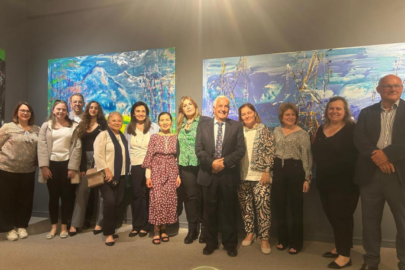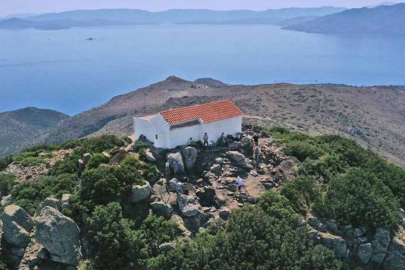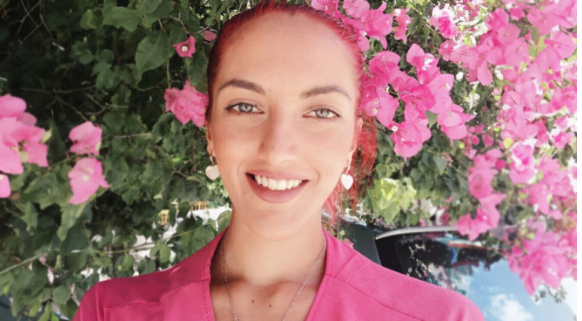Holy Saturday is the last day of fasting in Greece as the moment of the Resurrection draws near. This day is full of symbolisms:
Fasting
Even Greeks who have not fasted throughout the period of Lent refrain from eating meat, oil, eggs, milk and other forbidden products on this day. A proverb from Cyprus says: “Cursed be the one who fasts every Saturday and omits to fast on Holy Saturday.”
Church
At morning mass, the purple and black ribbons have been replaced with white ribbons dripped within Churches. The priest reads the Gospel of the First Resurrection. Parishioners gather at church again at midnight for the Resurrection service. Most churches have set out special platforms for the priest to recite the Gospel. The service reaches its crescendo at Midnight when the priest chants “Christ has Risen” (Hristos Anesti) and passes the Holy Light from the sanctuary through to parishioners. There is joy, kissing, passing of the Holy Light and fireworks. The mass continues inside the church but most parishioners go home to enjoy a special meal.
Holy Light
Each year, the Holy Flame miraculously appears from the wall of the Greek Orthodox Parish of the Jerusalem Patriarchate. It is this flame that is flown to Greece in pomp and ceremony.
After the midnight service, people take the Holy Light home with them. They symbolically make a cross on their door frame before entering their house so that God can protect it.
Bonfires
Special bonfires are created outside churches in some areas. These are called Fanos, Lambradzia or Founara, depending on the region where they take place. In soe aras villagers jump over the coals, believing that this will bring them good health. In other areas, they burn effigies of Juda.
Throwing of Crockery
In Corfu, after the Resurrection, people throw old crockery and ceramics out of their windows to break onto the street. This is a symbolic casting out of Jesus.
Midnight meal
People’s fast is broken with a meal of mageiritsa, a special soup with lamb innards and a large variety of vegetables. They crack red eggs by stating “Christ is Risen” (Hristos Anesti) and responding “Alithos Anesti” (Yes, he has Truly Risen). The egg-cracking competitions find the strongest egg. They also eat a special Easter bread known as tsoureki.



































